
Ashlyn Harris breaks silence on ‘brutal’ cheating rumours following divorce from Ali Krieger
Ashlyn Harris has addressed rumours she cheated on ex-wife Ali Krieger amid her new rumoured romance with Sophia Bush. The former US National Women’s Soccer Team player took to her Instagram on 18 November to share a lengthy statement following her divorce from Krieger. In her post, Harris denied cheating rumours and revealed how the subsequent “online hate” has negatively impacted her mental health. “Several weeks ago, a process that had been ongoing privately for some time became public,” Harris began. “Ending a relationship after almost 13 years of friendship, teammate-ship, marriage and co-parenting (many of them good years) is a decision that was not made lightly.” “We agreed to centre our children, continue therapy, separate, and to move forward with our lives. Two happy families are always better than one unhappy one. This process is never easy, but we were making our way through,” she continued. Harris explained that the former couple were advised by their agents and representation to keep news of their split private until after Krieger finished her NWSL season earlier this month. However, the 38-year-old athlete revealed that “a leak (a betrayal of our deepest confidence) made that impossible”. “The online hate that has happened since has been one of the most personally devastating experiences of my life,” Harris said. While she noted that she was encouraged “not to feed the beast” of negative online comments, Harris maintained that the past few weeks have “devastated my mental health”. She added: “This has been brutal.” Harris claimed that she has received online death threats since her divorce, as well as comments from trolls criticising her two children - daughter Sloane, two, and one-year-old son Ocean - who she shares with Krieger. “Words matter. The cheering on abuse, the people clamoring to encourage me to commit suicide, and the cruel words spoken about my children and who I am as a mother? Those words matter,” she said. “Someday my kids are going to be able to read the hate that strangers on the internet wrote, all because those strangers had an unsolicited opinion on my health and happiness? What are we doing here?” Harris then addressed why she and Krieger split after four years of marriage, writing: “People have run with a narrative that’s unbearably painful. Not all marriages last forever. Ours did not. For many reasons.” The former soccer pro admitted that the “false narratives” surrounding her marriage may be “juicier or make a better headline”, but the rumours that she cheated on Krieger were “simply not true”. “Let me be clear: I did not step out on my marriage. I was always faithful in my marriage, if not always totally happy. Like in many partnerships, there was work and therapy and processing done. None of this happened on a whim,” Harris said. “We spent the entire summer working to tackle the separation and divorce steps outlined for us by our therapists, lawyers, and our shared agency.” The former USWNT star explained how by “finally choosing my own health and happiness”, she has also “chosen a better future for my kids”. However, Harris claimed that she’s had “an entire community turn on me” in the wake of her divorce. “I’ve spent my whole career trying to build an inclusive space where people can show up as themselves and where they know they will be safe,” she continued. “Right now, it feels like the entire community has poured gasoline on me and lit the matches. So many of you, including people who stand publicly as anti-bullying advocates, have cheered this on like bloodsport. As though a family in transition is on opposing teams. Like a divorce is a battle, one person stands to win.” Harris wrote that her number one priority is her children, and being a “good co-parent” with Krieger. “Despite this current darkness, there have been years of love between us. And our kids are the best part of it all,” she said. “They deserve two healthy and happy parents, and that’s what matters most. We are all in pain.” The retired soccer pro concluded her statement by reminding people that “bullying anyone about a personal decision, especially when that bullying is rooted in lies, really hurts”. “I’m hoping that instead of continuing this cruelty you can remember the simple truth that I’m a human being, a mom, and a good person just trying my best. I’d appreciate if you could take a breath and treat me and my family with some humanity,” she finished her statement. It was reported in October that Harris had filed for divorce from Krieger after nearly four years of marriage. The ex-goalkeeper filed the court documents in Florida’s Seminole County on 19 September. According to ESPN, the co-parents are required to decide on a parenting plan for their two adopted children. The soccer duo first met in 2010 while playing for the USWNT. Harris and Krieger were engaged in 2019 and tied the knot in Miami on 28 December that same year. Now, Harris is reportedly datingOne Tree Hill alum Sophia Bush, who also filed for divorce from husband Grant Hughes after just 13 months of marriage. “After being friends for years, and running in the same social circles, Sophia and Ashlyn went out on their first dinner date a couple of weeks ago,” a source told People last month. “This is so recent, and they are both beginning new chapters.” Meanwhile, a representative for Hughes told Page Six that he is happy for the new couple following his divorce from Bush. “Grant will always want the best for Sophia, and is supportive of all that makes her happy and fulfilled,” they told the outlet. Bush was previously married to her One Tree Hill co-star Chad Michael Murray from 2005 to 2006. Read More I present my children on Instagram like a fairytale – I’m now rethinking Will an adaptogen a day keep the doctor away this winter? Naomi Watts admits mid-thirties menopause felt like ‘the end of my worth’ I present my children on Instagram like a fairytale – I’m now rethinking Will an adaptogen a day keep the doctor away this winter? Naomi Watts admits mid-thirties menopause felt like ‘the end of my worth’
2023-11-21 00:52

I present my children on Instagram like they live in a fairytale – could it damage them?
Freshly cut roses. Sumptuous Marie Antoinette-style birthday cakes. Vintage Liberty dresses in Strawberry Thief fabric. Shetland ponies. These are some of the ingredients of my Instagram posts featuring my kids. I wouldn’t call myself a “sharent” by any means – someone who overshares their children’s intimate lives on social media in one long, parental “humblebrag”. But whenever I do post, it is picture-perfect. My kids look like they’ve walked straight out of a fairytale. But is it naff? Like tablescaping your kids? A form of digital narcissism? Is it, in its own unique way, a parental kind of “thirst trap”? To an extent, I’m luring others into a fantasy that doesn’t exist. I like to project a wonderfully idyllic life as a single mum... when quite frankly, it isn’t. It’s like when people try to woo their ex-partners back by posting shots of themselves half-naked and having the best time of their lives, despite crying into their pillow heartbroken all day and night. Some mums are professionals at posting perfect dreamy shots of their kids. Look no further than Carrie Johnson, Tamara Ecclestone, Stacey Solomon, and Kate and Rio Ferdinand. For celebrities and influencers, a picture-perfect ideal is the norm on social media – there are lots of cream interiors and matching Christmas jumpers. They might be promoting a homeware brand, or tagging a pram they got for free. Even when it’s tastefully done, like the former PM’s wife’s Instagram, it always gives the impression that motherhood is wondrous. That life is one big, happy Timotei advert. Even when celebrities try to be more candid, it doesn’t work. Mum-of-two Millie Mackintosh, formerly of Made in Chelsea, recently posted a “toddler tornado dump” on her Instagram. “I feel like it’s so easy to always share the nice, polished, life,” she wrote. “Well, today, I’m here to break that pattern.” The glimpse “into the delightful chaos” of Mackintosh’s maternal life included photos of a toothbrush and toothpaste on a bathroom basin, a bedroom littered with hair bows, and a make-up drawer with a few brown concealer stains on it. Really? Is that as bad as motherhood gets? For me, it’s simply more interesting to post magical rather than mundane shots. But why on earth do I want to present my kids as if they’re living in one long, tasteful pastel-coloured dream, where everything looks enchanting? No messy hair. No sleep deprivation. No kids bored out of their minds. I don’t require a filter, either – I’m already looking at life through rose-tinted spectacles, and expecting everyone else to do the same. But am I totally deluded? And, more than anything, could it be damaging to my children? Dr Charlotte Armitage, who is currently the duty-of-care psychologist on ITV’s Big Brother, has big concerns. “First of all, it’s impacting the relationship between the parent and a child because the relationship is contingent on the creation of these images and the number of likes that follow,” she says, adding that when you are “truly happy” with your situation, “you don’t tend to post perfect images”. It’s more important to ask ourselves the question of why we feel the need to present this kind of picture-perfect image of ourselves to the world. Is it because, in reality, we are discontented with our lives? Dr Charlotte Armitage, psychologist As parents, she continues, we are modelling behaviours to our children. “They learn by imitation – if mum is taking photos and seeking validation from likes, the child starts to become validated by these likes themselves and will develop an external focus of control; they will learn that validation comes from what others think of them. This is unhealthy because, throughout life, a child’s self-esteem and self-worth become based on what others think about them rather than how they feel about themselves.” The key, she says, is realising we shouldn’t use social media to fulfil our self-worth. “It’s more important to ask ourselves the question of why we feel the need to present this kind of picture-perfect image of ourselves to the world,” she says. “Is it because, in reality, we are discontented with our lives?” According to research, the average child today has had their image put on social media 1,300 times before the age of 13 – I can see this trajectory for my kids unless I put on the brakes. There are already widespread concerns over the data. In France, an anti-sharing bill continues to be discussed in the country’s senate, and parents could potentially be banned from sharing photos of their children on social media. It could also become mandatory for influencers to admit if a photo or video they posted was retouched or filtered. There is controversy over whether pictures of kids should even be posted online at all, as many are too young to even give permission. How will they feel about the spread of their image in the future? What happens if their identity is stolen – or worse, used by paedophiles? Does it promote a distorted reality of motherhood, compared with which other “normal” mums feel inadequate? And can it backfire on the parents when children’s rights in the digital era are not honoured? “Children tend to be frustrated or critical of the way their parents share images of them,” says Professor Sonia Livingstone, from the department of media and communications at the London School of Economics and Political Science. “Not because they are made to seem ‘perfect’ but because they can be embarrassed, even shamed, in the eyes of their peers. Meanwhile, parents feel hugely under pressure in many ways, both to be perfect parents and also because such images leave parents competing with each other and isolated in their own seemingly inadequate lives.” Dr Cosmo Duff Gordon is the founder of leading addictions clinic Start2Stop, and a psychologist in private practice at Chelsea Recovery Associates. He says that in his 20-year career as a psychologist, he’s “never had a parent sit in front of him and say ‘I’m addicted to Instagram,’” but that’s not because social media addiction doesn’t exist. He puts it largely down to “denial” – “not least since the use of social media can involve so many of the processes that usually characterise classic alcohol or drug addiction”. Denial being the number one culprit. “Obvious ones might be obsession, compulsion, capture of attentional focus and loss of control,” he says. “More subtly, social media use can involve the same sort of self-medication, or escape from reality, that addiction offers – and being a parent is hard. That’s why drifting into a fantasy land can be a relief from the daily grind of motherhood.” Parenting expert Hannah Keeley – aka “America’s #1 Mom Coach” – is more upbeat about mums posting potentially inauthentic photos of their kids. “The hardest truth to accept is that there are some mums who are actually professionalising motherhood to this level,” she says. “Not that they have achieved perfection, but they take pride in their performance as mums and use social media as a way to confirm that to themselves and boost their confidence to encourage their efforts. Should these mums also be obligated to ensure that all mums feel good about themselves, whether or not they have invested in their career to this level? Mums don’t have to be responsible for other mums’ perceptions.” After great debate and reflection, I’ve decided I’m happy with my Insta posts. They might be driven by my background, where my sister and I ran around in white nightdresses as if we had starring roles in Picnic at Hanging Rock. Or because I was conditioned to believe that how we look – even how thin we were – equalled self-worth. I’m not setting myself up to be a supermum. I don’t look at how many likes I get. It’s true that us mums also need to share our parenting experiences honestly, to let other mums know they are not alone. But for now, I’m not doing a U-turn – I’m just living the fairytale dream. Read More My daughter’s horsey hobby makes her happy, but our home now hums If poachers make the best gamekeepers, do siblings make the best babysitters? Mother’s song about how easy it is to be ‘such a good dad’ goes viral Will an adaptogen a day keep the doctor away this winter? Naomi Watts admits mid-thirties menopause felt like ‘the end of my worth’ Smoking causes 150 cancer cases every single day in UK, study finds
2023-11-20 14:47

Smoking causes 150 cancer cases every single day in UK, study finds
Smoking causes 150 cancer cases every day in the UK alone, according to a new study. While tobacco smoking in the UK and US peaked to about 50 per cent in the 1950s, this had dropped to around 13 per cent in 2020-21 due to control efforts, said the study. However, historically high smoking rates are still a driving factor of the cancer burden in the countries today, it said. Very high-income countries like the UK are projected to see a 50 per cent increase in cancer cases over the next 50 years, said Cancer Research UK, that funded the study, on Wednesday. Researchers called on MPs to support raising the age of sale of tobacco products as a critical step to create the first ever smoke-free generation. “Action on tobacco would have the biggest impact – smoking causes 150 cases of cancer in the UK every single day,” said Ian Walker, executive director of policy and information at Cancer Research UK. “There are cost-effective tools at hand to prevent cases of cancer, which will save lives around the world. “Tobacco control measures are chronically underfunded. And as a recognised leader in global health, the UK government can play a significant role in addressing this,” Mr Walker said. The study also revealed at least 1.3 million people in seven countries die due to cancer caused by smoking tobacco. The deaths across the UK, US, Brazil, Russia, India, China and South Africa represent over half the world’s annual cancer death burden. The study analysed the years of life that were wasted to cancer. It also assessed whether certain risk factors caused deaths more prematurely. Researchers found four preventable risk factors resulted in almost two million deaths combined and over 30 million years of life lost each year. These factors are smoking, alcohol consumption, obesity and human papillomavirus (HPV) infections. At least 20.8 million years of life are lost from smoking tobacco alone, found the study. It also warned new cancer cases could surge by five times, from 0.6 million to 3.1 million per year in low-income countries over the next 50 years. “These numbers are staggering, and show that with action on a global scale, millions of lives could be saved from preventable cancers,” Mr Walker said. Researchers also found gender differences in the number of cancer deaths. Men were observed to have higher rates of years of life lost to smoking and drinking alcohol as these rates tend to be higher in men. In China, India and Russia, the rates of years of life lost to tobacco smoking and alcohol were up to nine times higher in men than women, found the study. The research was published in the journal eClinicalMedicine and involved the work of researchers from King’s College London and Queen Mary University of London. Read More Binman shoots first Hollywood film after chat with Mark Wahlberg changed his life UK’s tallest living Christmas tree lit up with 1,800 bulbs Morrisons Christmas ad features iconic 80s track and shares support for festive hosts The best foods to forage in November and how to cook them Millions of women able to get contraceptive pills over the counter next year Woman with cystic fibrosis had weeks to live – now she’s climbing mountains
2023-11-16 18:47

Millions of women able to get contraceptive pills over the counter next year
Millions of women will be able to get free contraceptive pills on the high street from next year without having to see a GP, under new plans revealed by the NHS. Starting next month, women in England can obtain a first prescription of the pill by visiting their local pharmacy. The change will give women greater choice over where to get the pill, and will free up 10 million appointments in GP surgeries, according to NHS England. The move has been hailed as a “step in the right direction” for patients and comes as part of a broader plan to allow patients to be treated for a range of conditions at local pharmacies. These conditions include sore throats and urinary tract infections. William Pett, the head of policy, public affairs and research at Healthwatch England, said: “Women across England will welcome the convenience of getting the contraceptive pill at a local pharmacy. “Being able to see your GP in a timely manner remains the public’s top concern. “If this initiative is effectively communicated and delivered, it will make a real difference to patients and relieve the pressure on hard-pressed services.” Mr Pett said there could be problems with the plan, though, such as pharmacists not being able to see a patient’s GP records, or differences in access between different areas of the country. The plan to make the pill available from pharmacies was piloted among a cohort of 4,500 women earlier this year. Under the scheme, if women opt for the combined oestrogen and progestogen pill, they will have a check-up with a pharmacist to record their blood pressure and weight. No checks are needed for the mini pill (progestogen only), which is also the case in other settings, NHS England said. Pharmacies need to sign up for the new service, meaning that it will not be available immediately everywhere in England. As more pharmacies join the scheme, the NHS web page will be updated so that women can check which locations offer the service. Women who are significantly overweight, or whose blood pressure is high – putting them at higher risk of blood clots on the combined pill – may be referred to their GP for further checks. The ongoing checks on blood pressure and weight that women need when they are on the pill will also be available in pharmacies. Funding has also been put in place to allow more pharmacies to offer repeat prescriptions of all types of contraceptive pill. NHS England said it expects almost half a million women to be able to access the pill next year without needing to contact their GP first, with the figure rising after that. Prescription figures for 2022-23 suggest there were almost 3 million prescriptions for the combined pill and more than 4 million for the mini pill. NHS chief executive Amanda Pritchard said of the plan: “This is really good news for women – we all lead increasingly busy lives, and thanks to this action, rather than making a GP appointment, they can simply pop into their local pharmacy when they need or want to access contraception. “We will also be expanding services so that more health checks are available for patients on the high street, which is not only better and easier for patients but also frees up NHS time for more GP appointments for those who need them most.” Under wider plans, pharmacists will be offering more blood pressure checks to patients who are at risk of high blood pressure, with a commitment to deliver 2.5 million a year by spring 2025. NHS England estimates that this could prevent more than 1,350 heart attacks and strokes in the first year. Dr Leyla Hannbeck, CEO of the Association of Independent Multiple Pharmacies, said: “This is a step in the right direction for patient care. The pharmacy network has the knowledge, skill sets and the willingness to deliver these services and support the NHS. For years we have been highlighting that, if supported appropriately, pharmacies can add a lot of value to the NHS. We are accessible and we have a track record of delivering for patients.” Victoria Atkins, the new health and social care secretary, said: “For the public, these changes will mean more options for women when making a choice about their preferred contraception, reduce the risks of people suffering heart attacks and strokes, and make it easier to access medicines for common conditions.” Janet Morrison, chief executive at Community Pharmacy England, said: “It makes perfect sense to use community pharmacies as a first port of call for healthcare advice, access to contraception, and health checks such as blood pressure tests.” Read More Stephen Fry uses walking stick after breaking his leg, pelvis and ‘a bunch of ribs’ Jonnie Irwin jokes he’s ‘whacked’ after attending The Streets gig in Newcastle Kourtney Kardashian ‘gives birth to first child’ with Travis Barker Stephen Fry uses walking stick after breaking his leg, pelvis and ‘a bunch of ribs’ Jonnie Irwin jokes he’s ‘whacked’ after attending The Streets gig in Newcastle Kourtney Kardashian ‘gives birth to first child’ with Travis Barker
2023-11-16 11:29

Marlon Wayans reveals his child is transgender as he expresses ‘unconditional love’ for son
Marlon Wayans has revealed that his son is transgender. Now, the actor and producer is opening up about his own “transition” as the parent of a trans child. In an interview on The Breakfast Club on 10 November, the White Chicks star shared that his eldest child changed their name and pronouns. “I have a daughter that transitioned into a son,” the comedian said, adding that his child now goes by the name Kai. At first, Wayans admitted that his son’s transition was difficult for him to accept. However, he plans to focus on both Kai and the lessons he’s learned as a parent in an upcoming comedy special, tentatively titled Rainbow Child. “I talk about the transition, not their transition, but my transition as a parent going from ignorance and denial to complete unconditional love and acceptance,” Wayans said. “And I think there’s a lot of parents out there that need to have that message, and I know I’m dealing with it. It was a very painful situation for me.” The 51-year-old actor went on to praise Kai as “brilliant” but admitted that he’s “still working” on addressing his son by his correct pronouns. “They know I love them, they see me trying. They’re like: ‘I’m happy,’” Wayans said. “But I gotta respect their wishes.” He explained that his greatest wish for both of his children - including his 21-year-old son, Shawn - was to “be free” and confident in who they are. “I want them to be free in spirit, free in thought, free to be themselves,” Wayans said. “The more you know yourself, the more you can govern yourself. The more you live your truth, the happier your existence.” “I’m just so proud of them for being them,” he added. Wayans shares sons Kai and Shawn with his former partner, Angela Zackery. While the two were in a long-term relationship from 1992 to 2013, they were never married. The Air star has often shared glimpses into his life as a father of two on social media. Back in September 2022, Wayans celebrated National Son Day by posting throwback yearbook photos of both Kai and Shawn. “Happy #nationalsonday Shawn and Kai,” he captioned the amusing post. “I can’t believe y’all actually smiled like this for class pictures…The f***?! I told you it would come back to haunt y’all a**es.” In May, Wayans shared a birthday tribute for Kai by posting a sweet photo of him kissing Kai on the cheek after his graduation. In the caption, the comedian shared a special message to his transgender son, thanking him for “teaching me what [it] really means” to love unconditionally. “Happiest bday my baby… daddy loves you to the moon and back,” Wayans wrote. “I’ve always asked people to love me unconditionally, thank you for teaching me what that really means. Be you! Your best you! You’re the gift and I’m wrapping paper… love love love you for life. “Excuse my ignorance, chalk it up to growth. Love you so much, thank you for making me a man. So proud,” he added, alongside a rainbow emoji. Read More People crave comfort food more during the winter season - here’s why Gordon Ramsay’s daughters praise ‘rockstar’ mom after giving birth to sixth child Top 10 hacks to beat the afternoon slump People crave comfort food more during the winter season - here’s why Gordon Ramsay’s daughters praise ‘rockstar’ mom after giving birth to sixth child Top 10 hacks to beat the afternoon slump
2023-11-14 23:54
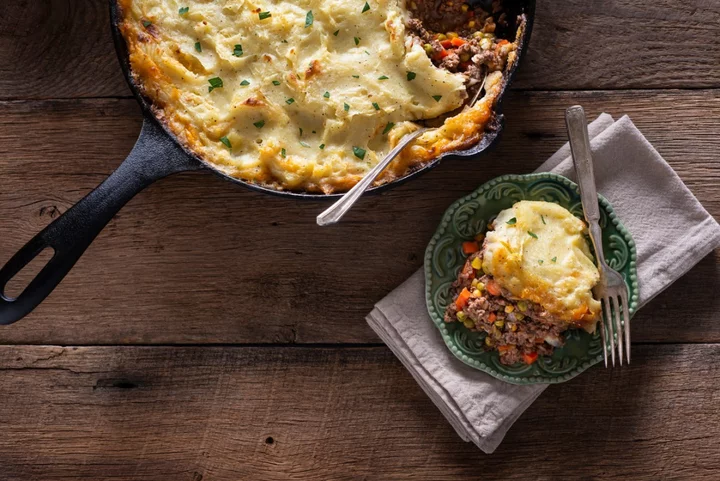
People crave comfort food more during the winter season
People will be spending 30 per cent longer in the kitchen this winter compared to the summer months – as they crave comfort foods to keep them warm. A study of 2,000 adults who cook at home found they anticipate spending 72 hours rustling up meals from December to February, but just 55 hours from June to August. And 40 per cent spend more time cooking in the cooler months than they do during any other season. Among the reasons for this upward trend are a craving for more hearty, comforting dishes (65 per cent), wanting to feel warm and cosy (42 per cent), and the kitchen being the warmest room in the house (32 per cent). It also emerged 51 per cent are concerned about the impact more time spent in the kitchen will have on their household bills. As a result, 79 per cent are keen to learn more energy-efficient recipes. The research was commissioned by Smart Energy GB, which has teamed up with Michelin-trained chef, Poppy O’Toole, dubbed TikTok’s ‘Potato Queen’, who has crafted a selection of energy-efficient recipes and hacks She said: “Winter is one of my favourite seasons when it comes to the wealth of hearty, comforting recipes you can create - especially if they include potatoes. “And when the weather is colder and the days shorter, what better way to spend time than cooking your favourite winter warmers? “These dishes can take more time and energy to make, which is why I’m excited to show it doesn’t always have to be this way. “I’ve developed a recipe range of energy efficient takes on classic favourites - all with the help of a smart meter.” The study also found 25 per cent of those with a smart meter plan to monitor their in-home display more carefully during the winter. Of those, 42 per cent are doing so because it gives them a greater sense of control over their household bills, while 40 per cent want to reduce their energy use when cooking. One in five of all adults are searching for more cost-saving cooking methods, and 77 per cent said being mindful about energy use when cooking is important to them. It also emerged the typical home cook will use their oven for the equivalent of nearly three days (64 hours) from December to February, and their hob for nearly two days (46 hours). This amounts to at least £18 in energy usage in the kitchen alone between December and February, according to data from Smart Energy GB and Energy Saving Trust. A traditional roast, shepherd’s pie and sausage and mash are among the most popular meals made when then temperature plummets. The study, conducted via OnePoll, also found 39 per cent are using more kitchen appliances in their cooking endeavours than ever before. The oven was voted the top winter appliance of choice (43 per cent), with the economical air fryer (27 per cent) also featuring in the top 10. Victoria Bacon, director at Smart Energy GB, said: “As we head into the colder, winter months where many people spend more time in the kitchen, small changes to the way we cook can make a tangible difference to the amount of energy that’s used. “Smart meters are installed at no extra cost by your energy supplier and come with a handy in-home display which allows you to track your usage in near-real time. “These warming recipes created by Poppy are the perfect thing to help households rustle up hearty dish, while keeping an eye on energy use.” Read More Watch live as gun salutes mark King Charles III’s 75th birthday Woman defends her $7,000 cheese board How to host a dinner party for under £2 per portion Man shows the increase in grocery prices since 2019 Starbucks customer reveals comical result of her request for half sandwich Waitrose Christmas advert features Graham Norton cameo at kid-free festive party
2023-11-14 20:15
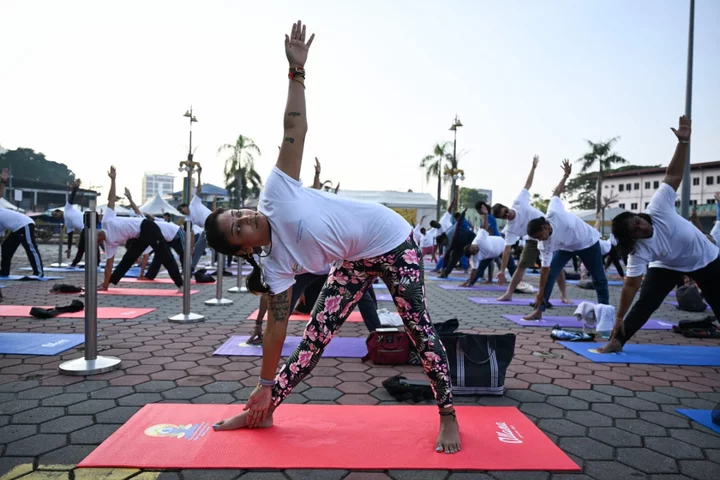
Yoga may reduce seizure frequency in epilepsy patients, scientists claim
Doing yoga may help reduce frequency of seizures in people with epilepsy and lower their anxiety, a new study found. The practice may also improve patients’ overall quality of life by reducing the stigma they feel from having the disease, according to the research, published last week in the medical journal Neurology. “People with epilepsy often face stigma that can cause them to feel different than others due to their own health condition and that can have a significant impact on their quality of life,” study author Manjari Tripathi from All India Institute of Medical Sciences (AIIMS) in New Delhi said. “This stigma can affect a person’s life in many ways including treatment, emergency department visits and poor mental health,” Dr Tripathi explained. In the study, researchers assessed people with epilepsy with an average age of 30 in India. They measured stigma among participants based on their answers to questions such as: “Do you feel other people discriminate against you?” “Do you feel you cannot contribute anything in society?” and “Do you feel different from other people?” About 160 people who met the criteria for experiencing stigma were then identified. These patients had an average of one seizure per week and on average took at least two anti-seizure medications, researchers said. One set of patients were then randomly assigned to receive yoga therapy, which included exercises in loosening muscles, breathing, meditation and positive affirmations. Another set of patients received a sham therapy that mimicked the same exercises, but these participants were not given instructions on two key components of yoga – slow and synchronized breathing, and attention to the body movements and sensations. Both the groups received seven supervised group sessions of 45 to 60 minutes over three months. They were also asked to practice sessions at home at least five times a week for 30 minutes and track their seizures and yoga sessions in a journal. Participants were then followed for an additional three months after their first three months of therapy. People who did yoga were more than four times as likely to have their seizure frequency more than halved after six months than the people who did sham yoga, the study found. Compared to those who did the sham practice, participants who did yoga were more likely to reduce their perceived stigma of the disease, researchers say. People who did yoga were also over seven times more likely to no longer have seizures than those who did the sham practice, according to the study. Researchers also reported a significant decrease in anxiety symptoms among those who did yoga versus people who did not. “The intervention group showed significant improvement in symptoms of anxiety, cognitive impairment, mindfulness and quality of life relative to the control group at the end of follow-up period,” researchers wrote. “Yoga may not only help reduce stigma, but also improve quality of life and mindfulness. Plus, yoga can be easily prerecorded and shared with patients online using minimal resources and costs,” Dr Tripathi said. Citing the main limitation of the study, researchers said the participants self-reported their seizure frequency and they may not have remembered all the information accurately. However, they say the findings “elevate the need to consider alternative therapies and activities for people with epilepsy facing stigma”. Read More Jonnie Irwin says he ‘never thought’ he’d be alive to see his 50th birthday Billy Connolly shares health update on Parkinson’s disease: ‘Every day gets stranger’ What are the symptoms of Parkinson's disease and how can it be treated? Jonnie Irwin says he ‘never thought’ he’d be alive to see his 50th birthday Billy Connolly shares health update on Parkinson’s disease: ‘Every day gets stranger’ What are the symptoms of Parkinson's disease and how can it be treated?
2023-11-13 12:55
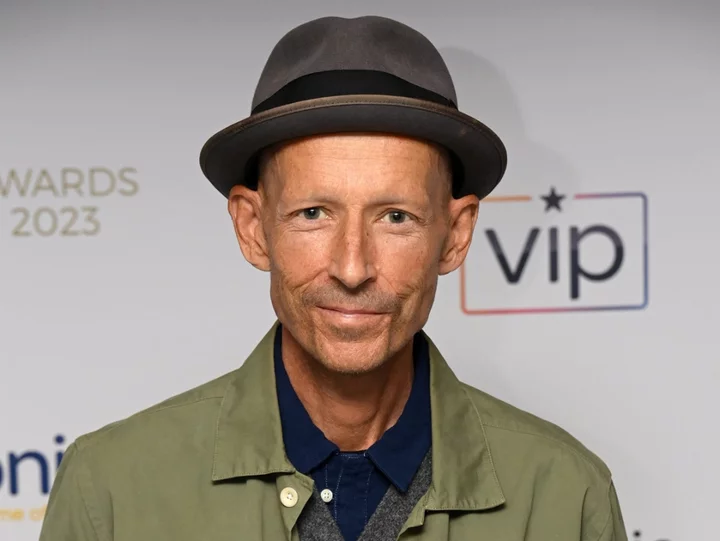
Jonnie Irwin says he ‘never thought’ he’d be alive to see his 50th birthday amid terminal cancer diagnosis
TV star Jonnie Irwin has admitted that he “never thought” he’d be alive to see his 50th birthday, which is next week. Irwin, 49, who is best known for presenting property TV shows A Place in the Sun and Escape to the Country, was diagnosed with terminal cancer in 2022. In January, Irwin threw an early 50th birthday party, ahead of the actual date next week, with a huge part with 170 friends and family. But in a new interview, the presenter has said he will be jetting off on holiday to Spain with his family for his actual birthday. “I never thought I’d be here,” Irwin told The Sun. “I’m really looking forward to some time with [wife] Jess and the boys.” Irwin shares three young sons with his wife, Jessica Holmes. He has been praised for his transparency about his condition, and his experiences with various cancer treatments. Since his diagnosis, Irwin has followed a strict diet and spends one to two hours a day in an O2Worx hyperbaric oxygen tent. Some studies have shown that flooding the body with oxygen does not promote tumour growth and has been linked to preventing cancer growth. In July this year, Irwin discussed his “really good” experience with palliative care, which focuses on improving the quality of life for anyone facing a life-threatening condition. Irwin said that he has been in palliative care since the day he received his terminal cancer diagnosis. He was first diagnosed with lung cancer in August 2020, but only publicly shared the news in November 2022 after the cancer spread to his brain. His hospice experience was a “delight”, Irwin said, challenging his initial perception that such facilities were “very much a boiling hot room full of people who looked frail and towards the end of their days”. In September, the presenter made his long-awaited return to TV when he hosted a new episode of Escape to the Country on BBC One. Looking back at his time in a hospice six months ago, Irwin said he was “on the cusp of death”. “Lying in the hospice, I thought I’d had it,” he told The Sun. ​​“But at my weakest point I thought, ‘This is it, this is the beginning of the end.’” ​​Irwin returned home and resumed his strict diet, drinking protein shakes and spending time in the oxygen tent to attempt to curb the growth of his cancer. “I won’t let cancer define me,” Irwin told the publication from his newly renovated home in Newcastle. “A friend of mine told me, ‘Your body achieves what your mind achieves’, and I want to live by that.” Read More Jonnie Irwin jokes he’s ‘whacked’ after attending The Streets gig in Newcastle Billy Connolly shares health update on Parkinson’s disease: ‘Every day gets stranger’ What are the symptoms of Parkinson's disease and how can it be treated? Billy Connolly shares health update on Parkinson’s disease: ‘Every day gets stranger’ What are the symptoms of Parkinson's disease and how can it be treated? Tracey Emin says she ‘totally accepted death’ following cancer diagnosis
2023-11-13 00:29

What are the symptoms of Parkinson’s disease and how can it be treated?
Parkinson’s disease is the world’s second most common neurodegenerative disorder, behind Alzheimer’s disease. While it’s unknown exactly why people develop the condition, according to Parkinson’s UK, experts believe its a combination of genetic and environmental factors that contribute to the damage of nerve cells in the brain. So what are the symptoms of Parkinson’s disease and how can it be treated? Here’s everything you need to know. What is Parkinson’s disease? Parkinson’s disease is a degenerative neurological condition. This means that over time the brain of an individual living with the disease becomes more damaged, the NHS explains. A person living with Parkinson’s disease doesn’t have enough of the chemical dopamine in their brain, the Parkinson’s Foundation states. Dopamine is responsible for transmitting signals between nerve cells in the brain. When an individual experiences a loss of nerve cells in the brain, this causes a reduction in the quantity of dopamine in the brain. What are the symptoms? The main symptoms of Parkinson’s disease include involuntary shaking (otherwise known as tremors), movement that’s slower than usual and stiffness in the muscles, the NHS outlines. Other symptoms may include difficulty balancing, nerve pain, incontinence, insomnia, excessive sweating, depression and anxiety. For more information about the symptoms of Parkinson’s disease, visit the NHS here. How many people does it affect? Around 145,000 people in the UK are affected by Parkinson’s disease, Parkinson’s UK explains. This means that around one in every 350 adults is living with the degenerative condition. According to the NHS, symptoms of Parkinson’s usually develop after the age of 50. However, for every one in 20 people affected by the disease, symptoms may appear when they’re under the age of 40. The Parkinson’s Foundation outlines that men are 1.5 more likely than women to be affected by the condition. High-profile individuals to have been diagnosed with Parkinson’s include former US president George H. W. Bush, Back to the Future star Michael J. Fox and The Chase star Paul Sinha. How can it be treated? While there is no known cure for Parkinson’s disease, symptoms may be controlled through treatment. The most common form of treatment used for the condition is medication, Parkinson’s UK states. “Drug treatments aim to increase the level of dopamine that reaches the brain and stimulate the parts of the brain where dopamine works,” the charity explains. The medication used to treat Parkinson’s disease varies according to each patient. This is because as symptoms of the disorder progress, the drugs used to treat the condition may need to be changed. While drug treatment may help to manage Parkinson’s symptoms, it cannot slow the progression of the disease. The NHS explains that those living with Parkinson’s disease may also undergo physiotherapy, occupational therapy, and, in rare cases, brain surgery to treat the condition. For more information about Parkinson’s disease, visit Parkinson’s UK. Read More What are symptoms of coronavirus – and where has it spread? Latest travel updates as coronavirus continues to spread Can face masks really protect you against coronavirus or flu? The dirty truth about washing your hands Billy Connolly shares health update on Parkinson’s disease: ‘Every day gets stranger’ Tracey Emin says she ‘totally accepted death’ following cancer diagnosis Nicky Hilton calls out critics who made negative comments about nephew Phoenix’s head
2023-11-11 21:28

Billy Connolly shares health update on Parkinson’s disease: ‘Every day it gets stranger and more different’
Billy Connolly has said that every day spent living with Parkinson’s disease “gets stranger”, as he shared an update on his health. The Scottish actor, 80, has been living with the condition since 2013, and said that the symptoms and lifestyle impacts of the disease often “creep up” on him. Parkinson’s is a brain disorder that causes unintended or uncontrollable movements, such as shaking, stiffness, and difficulty with balance and co-ordination. Often, the disease can become more severe over time. “Every day it gets stranger and more different,” the retired stand-up comedian told The Times. Connolly said that his newfound love for making drawings, painting and sculptures has helped him navigate the mental health toll of living with the condition. “I don’t know how I would have coped without drawing. It’s taken me out of the scene and put me somewhere else, where I can survey it from a different angle,” he said. “Art has made my life magical at a time when I thought it would be unbearable.” It’s been a decade since Connolly received his Parkinson’s diagnosis. The comedian was walking through the lobby of a Los Angeles hotel in 2013 when a fellow guest, a doctor, stopped him and said he shows physical signs of Parkinsons. This prompted Connolly to visit his doctor. “I’ll never forget what he said: ‘You have the gait of a Parkinson’s man,’” Connolly told the publication. According to Parkinson’s UK, Bradykinesia, which is a common condition among people with Parkinson’s, means slowness and a reduced range of movement when walking. It can make your steps smaller and it can take more time and effort to get around. When Connolly received his official diagnosis, he was also diagnosed with prostate cancer and gallstones in the same week. “It was a helluva week,” he said. “It got funny. My daughter Scarlett was with me in the ambulance on the way to the gallbladder surgery through Manhattan. The sirens were going – nee-naw nee-naw – and she said to me, ‘Is this your first Caribbean cruise?’ That’s a line I always said to her to make her laugh when her surroundings were awkward or boring.” During an interview published in September, it was revealed that Connolly had suffered “a couple of serious falls” and once broke his hip as a result of deteriorating balance. He no longer drives. Despite these growing physical challenges, the What We Did on Our Holiday star maintains a positive outlook on his health. In his memoir, Rambling Man: Life on the Road, which was released earlier this year, Connolly clarified that he doesn’t feel “close to death”. “You see, reports of my recent demise have been greatly exaggerated,” he stated in an extract shared with The Telegraph. “There was a week a few years ago where on Monday I got hearing aids, Tuesday I got pills for heartburn, and Wednesday I received news that I had prostate cancer and Parkinson’s disease. But despite all that, I never ever felt close to dying.” Rambling Man: Life on the Road is available now. Read More What are the symptoms of Parkinson's disease and how can it be treated? Tracey Emin says she ‘totally accepted death’ following cancer diagnosis Nicky Hilton calls out critics who made negative comments about nephew Phoenix’s head What are the symptoms of Parkinson's disease and how can it be treated? Tracey Emin says she ‘totally accepted death’ following cancer diagnosis Nicky Hilton calls out critics who made negative comments about nephew Phoenix’s head
2023-11-11 21:18
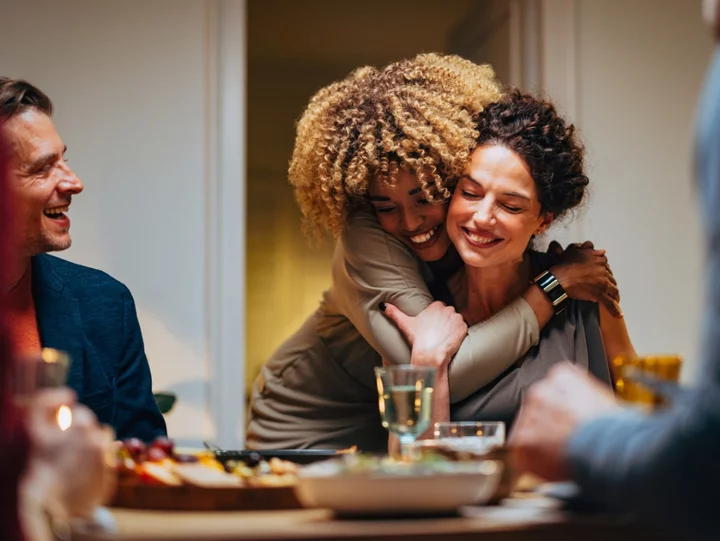
Scientists say monthly visits from family and friends can help you live longer
Scientists have found that visiting friends and family at least once a month can help you live longer. According to a recent study published by the University of Glasgow in BioMed Central Medicine, researchers discovered that there was a correlation between how often a person was visited by their family and friends with their life expectancy. Those who were never visited by their family reportedly had a higher risk of dying. Amid the ongoing loneliness epidemic, social isolation has previously been linked by researchers to a shorter life expectancy. This latest study sought to understand the effect that different types of social interaction have on our quality of life, with visits from friends and family, participating in a weekly group activity, and not living alone reportedly making the biggest difference among a group of 458,146 participants in the United Kingdom. Participants were between the ages of 37 and 73, with the average age being 56 years old, and data was collected between 2006 and 2010. Researchers asked the participants questions about the five different forms of social interaction: how often they were able to confide in someone close to them, how often they felt lonely, how often friends and family visited, how often they participated in a weekly group activity, and whether or not they lived alone. “We also tried to take into account lots of other factors that could explain the findings — like how old people were, their gender, their socioeconomic status, whether they were a smoker and more,” Dr Hamish Foster, a clinical research fellow at the University of Glasgow and the lead study author, explained to Insider. “And even after removing those factors from the equation it still showed that these social connections were important for risk of death.” Depending on when the participants were recruited, researchers would revisit the questions with the participants an estimated 12.6 years later to follow up. They reportedly found that, within those years, 33,135 or 7.2 per cent of participants died, with 5112 or 1.1 per cent passing from cardiovascular-related deaths. Strikingly, the study also found that “regardless of weekly group activity or functional components,” those who never had friends or family visit while also living alone were 77 per cent more likely to have a higher risk of death. However, Dr Foster cautions that the study is unable to take into account both the complexity and the quality of human social interactions. “Humans are really complicated and so are our connections and our measures in this study are pretty crude compared with what humans are capable of, but this study is still very detailed and is starting to drill down into how different types of connection are important,” Foster said to the outlet. He added that the study cannot prove that less socialisation causes death, but it does prove that loneliness and isolation can lead to not only poorer mental health but also poorer physical health. “We need to see more society-level interventions and support that make social connections easier, more likely, and of higher quality,” Foster added. “For example, community centers, parks, places, and activities that make it easy for people to meet and connect for high-quality relationships.” Dr Foster and his team of researchers aren’t the first to connect the dots between longer life spans and active social lives, with Netflix recently shining the spotlight on the famed blue zones - places with notably high populations of centenarians - in the docuseries, Live to 100: Secrets of the Blue. Within blue zones like Ikaria, Greece, or Okinawa, Japan, social interaction is prioritised within the community rather than being left on the backburner in favour of economic or individualistic pursuits. As the digital age and the pandemic have brought on an increase in social isolation, Dr Foster stressed that it’s important for young people to nurture their social lives and participate in their communities. Read More Blake Shelton opens up about parenting style with Gwen Stefani To shave or not to shave: How women can participate in No-Shave November Game of Thrones actor announces ‘unbearable loss’ of baby after stillbirth
2023-11-11 05:54
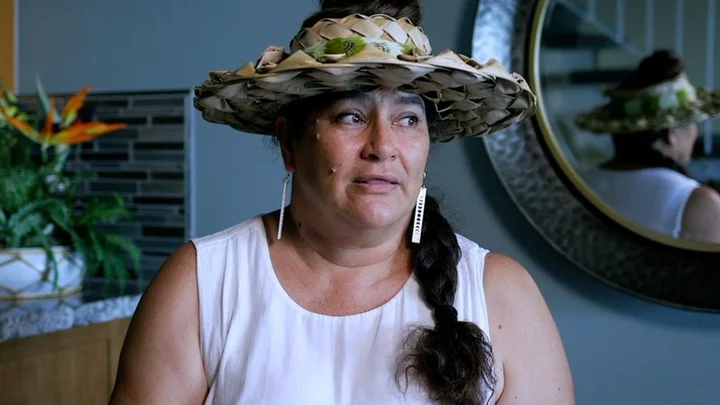
Trapped by a wildfire, their escape routes were blocked. Why?
A BBC investigation reveals confusion between officials as an inferno destroyed a town in Hawaii.
2023-11-11 03:49
